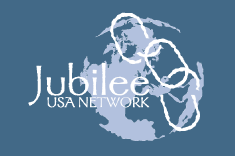Adel, justice, mizan, balance or equilibrium, and ihsan, compassion, are crucial words to understand in a search for what economic justice could mean in an Islamic context. Without justice, balance and compassion there is not economic justice.
Hayyat Tayibba, the good life: this is what the elite in these countries have and what the average people can only dream about, without much hope of obtaining it.
In Islam everything is a hibba, a gift from God. (Al-Lah means The God, The same entity worshipped by Christians, Jews and others. The similarities across the religions are as striking as the misunderstandings that emanate from those who do not understand them).
In Islam people could be seen as the stewards of God's gifts. We are accountable for the proper stewardship of those gifts and that wealth. Leaders, in particular, are accountable. Massooliyya, responsibility, is another one of those terms that resonate in a truly Islamic environment.
With ijma, consensus, and democratiyya, democracy, there should be more accountability than within the usual dictatorial states. In reality, however, there is often a continuum of accountability no matter what a system is called.
Accountability is never perfectly at hand. But without accountability there is hardly much hope for either the maximization of the goods and services available for the people, for the just production and distribution of those goods and services, or for the just distribution of the wealth accumulated and incomes generated from those productions.
Temporal accountability can lead into inter-existential accountability. Caliph Omar said that any Muslim leader who does not lead his people to greater prosperity and peace will not share a place in heaven with them.
There is no one definition of economic justice. Through the concepts of shura, consultation, injma, consensus, and through the opening of the door of ijtihad, interpretation, to apply Koranic economic concepts to the context of today there may be some hope for those who may want to go in this direction.
(Taken form the lecture Islam, Economic Justice and Economic Development in the Arab World by Dr. Paul Sullivan, National Defense University, Washington, DC November 17, 2004).






